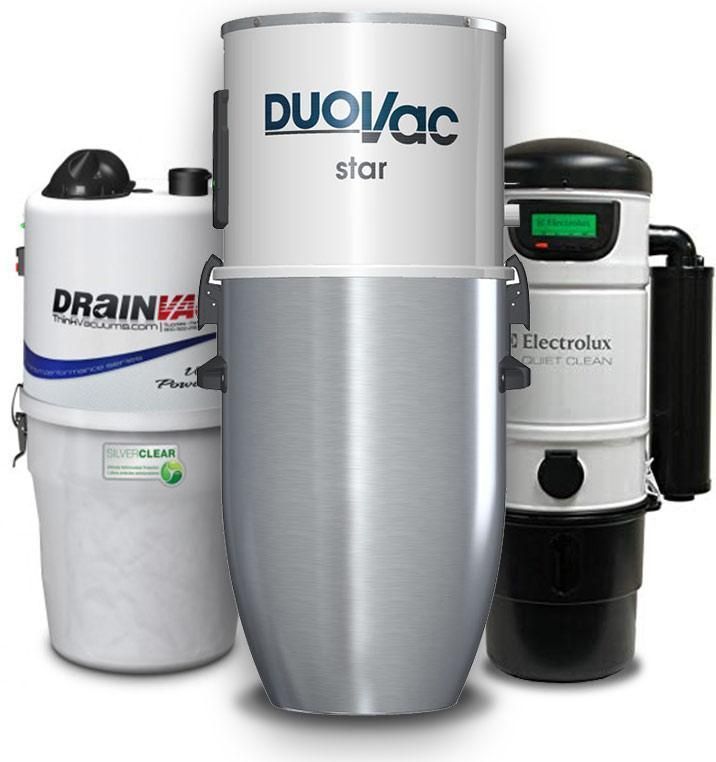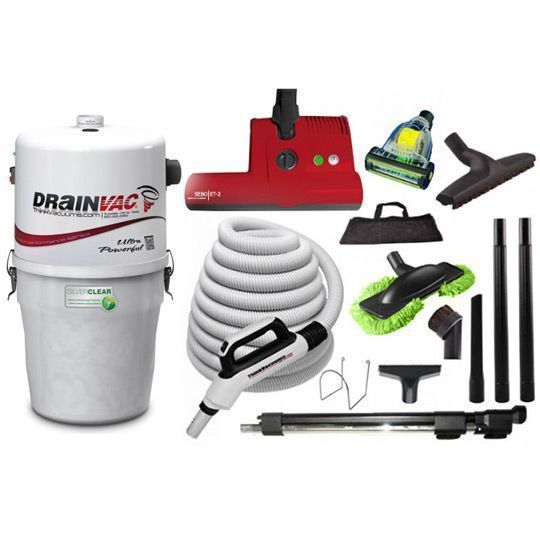Central Vacuum vs Dyson: The Ultimate Home Cleaning Comparison Guide
Why Central Vacuums Win Over Dyson Every Time
The Unseen Advantages of Central Vacuums Against Dyson
 Vacuuming might not be the most exciting chore, but having the right vacuum can make a world of difference. Central vacuums and Dyson vacuums are two popular choices, each with its own set of features and benefits. But when it comes to overall performance, central vacuums often have the upper hand. In this blog post, we'll explore why central vacuums are superior to Dyson vacuums, covering key aspects like technology, practicality, health benefits, user experience, and cost.
Vacuuming might not be the most exciting chore, but having the right vacuum can make a world of difference. Central vacuums and Dyson vacuums are two popular choices, each with its own set of features and benefits. But when it comes to overall performance, central vacuums often have the upper hand. In this blog post, we'll explore why central vacuums are superior to Dyson vacuums, covering key aspects like technology, practicality, health benefits, user experience, and cost.
Vacuum cleaners have evolved significantly over the years. From manual brooms to advanced machines, the quest for cleaner homes has led to the development of various types of vacuums. Central vacuums and Dyson vacuums are among the top contenders in today's market. While both are effective, central vacuums often prove to be the better choice. Let's dig into why.
Understanding the Technology
The Power Behind Central Vacuums
Central vacuums are known for their robust suction power. Unlike portable vacuums, which rely on small motors, central vacuums have powerful motors installed in a remote location, usually in the garage or basement. This allows for stronger suction, which is maintained throughout the house via a network of pipes. This means no matter how far you are from the motor, the suction power remains consistent.
Dyson's Technological Edge
Dyson vacuums are renowned for their cutting-edge technology. They feature Cyclone technology, which uses centrifugal force to separate dust and dirt from the air. Dyson vacuums also boast a range of models, including cordless options, that offer convenience and versatility. However, despite these innovative features, their suction power can diminish as the battery depletes or the dustbin fills up.
Filtration Systems
Central vacuums often come with HEPA filtration systems, which can capture up to 99.97% of particles, including allergens and dust mites. These systems ensure that the air expelled by the vacuum is clean and free from pollutants. Dyson vacuums also offer HEPA filters, but their smaller size means they need more frequent maintenance and replacement to maintain effectiveness.
Practicality and Convenience
 Ease of Use
Ease of Use
One of the biggest advantages of central vacuums is their ease of use. With a central system, you only need to carry a lightweight hose and attachments, rather than dragging a heavy unit around the house. This makes cleaning stairs, high places, and large areas much more manageable.
Maintenance and Installation
While central vacuums require professional installation, they are relatively low-maintenance once set up. The central unit needs to be emptied a few times a year, depending on usage. In contrast, Dyson vacuums, especially cordless models, need frequent charging and emptying. The small dustbins fill up quickly, requiring regular attention.
Space Considerations
Central vacuums take up minimal space within the living areas of your home. The central unit is typically installed in an out-of-the-way location, leaving your closets and storage areas free for other items. Dyson vacuums, while compact, still require storage space and charging stations for cordless models.
Health and Environmental Impact
Health Benefits
 Central vacuums excel in improving indoor air quality. Because the motor and filtration system are located outside the living area, there’s less recirculation of dust and allergens. This makes central vacuums an excellent choice for households with allergy sufferers. Dyson vacuums also have HEPA filters, but their design can sometimes lead to the release of dust when emptying the canister. In certain situations, central vacuums may require indoor venting. In such cases, the Activac 3 provides HEPA filtration, ensuring that allergens do not re-enter your home environment.
Central vacuums excel in improving indoor air quality. Because the motor and filtration system are located outside the living area, there’s less recirculation of dust and allergens. This makes central vacuums an excellent choice for households with allergy sufferers. Dyson vacuums also have HEPA filters, but their design can sometimes lead to the release of dust when emptying the canister. In certain situations, central vacuums may require indoor venting. In such cases, the Activac 3 provides HEPA filtration, ensuring that allergens do not re-enter your home environment.
Environmental Friendliness
Both central vacuums and Dyson vacuums have made strides in becoming more environmentally friendly. Central vacuums generally have a longer lifespan, reducing the need for frequent replacements. Dyson has also focused on sustainability, with many of their models made from recyclable materials. However, the batteries in cordless Dysons have a limited lifespan and can be challenging to recycle.
Cost Analysis
 Initial Costs
Initial Costs
Central vacuums have a higher initial cost due to the need for professional installation and the price of the unit itself. However, this investment often pays off in the long run due to their durability and low maintenance requirements.
Long-Term Costs
Dyson vacuums, while generally less expensive upfront, can incur higher long-term costs. The need for frequent filter replacements, battery replacements for cordless models, and potential repairs can add up over time.
Value Over Time
When considering value, central vacuums often come out on top. Central Vacuums often last 20 years, you will replace your regular vacuum cleaner 10x in that time. Their powerful performance, durability, and low maintenance needs provide excellent value for homeowners and cleaning enthusiasts alike. Dyson vacuums offer advanced features and convenience but may not match the long-term value of a central vacuum system.
In the End
In the battle of central vacuums vs. Dyson vacuums, central vacuums often emerge as the superior choice. Their powerful suction, ease of use, health benefits, and long-term value make them an excellent investment for homeowners and cleaning enthusiasts. While Dyson vacuums offer innovative technology and convenience, they may fall short in terms of consistent performance and long-term cost efficiency.
If you’re considering upgrading your vacuum system, explore the benefits of central vacuums further. For personalized advice and professional installation, contact our team of experts today at 800-322-2965.
Cleaner homes and happier lives start with the right vacuum choice.





Log In
Create New Account